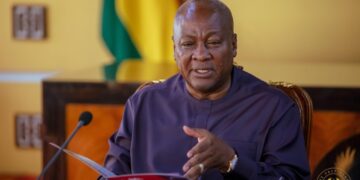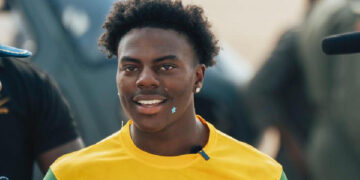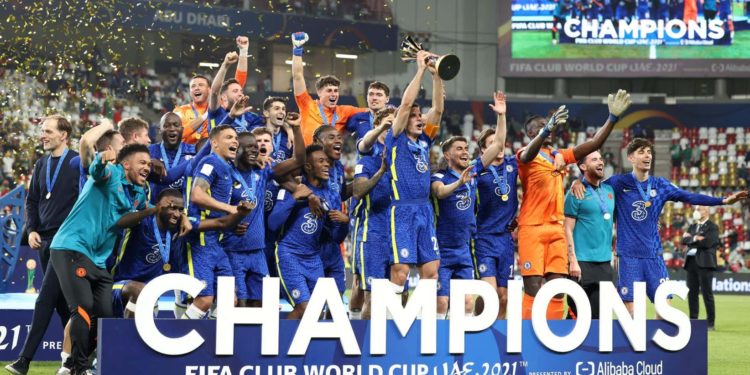Nine months after being crowned champions of Europe, Chelsea can now call themselves champions of the world, after defeating Brazilian side Palmeiras 2-1 in the Club World Cup final.
Having fallen to Corinthians at this stage of the competition a decade ago, it felt as though this would be a title — the only trophy Chelsea were yet to win in the Roman Abramovich era — that would be forever out of their grasp.
But there was a feeling of destiny to the affair this time as Kai Havertz, the player who scored the winning goal against Manchester City in last year’s UEFA Champions League final, stepped up to convert a stoppage-time penalty won by teammate Cesar Azpilicueta, who has become the first Chelsea player to have won every club trophy on offer.
Read also: Mark Addo, Vice President of the Ghana Football Association, chairs the new Black Stars Management Committee
It was the first time the reigning Copa Libertadores champions had reached the Club World Cup final, and Palmeiras’ 15,000-strong fan contingent savoured every moment, creating a wall of colour and noise long before kick-off at the Mohammed bin Zayed Stadium in the UAE.
Chelsea, perhaps ruffled by the unexpected opposition support, put on a conservative display in the first half. Although they ended up dominating possession 70 per cent to 30 while registering twice as many shots as their opponents, the Blues were wasteful in the final third and on set pieces.
The two sides were locked at 1-1 at full-time after Romelu Lukaku’s opener in the 55th minute was cancelled out by a Raphael Veiga penalty just after the hour.
Lukaku, having returned to the Chelsea fold following some controversial comments to Italian media late last year, continued to struggle to find his place in the side and was regularly isolated out of the game by Palmeiras defenders Gustavo Gomez and Luan Garcia.
An early substitution of Blues midfielder Mason Mount did not help, limping off in the 31st minute to be replaced by American Christian Pulisic.
Chelsea’s hesitation, particularly in midfield, allowed Brazil’s most successful club to grow into the match. Striker Dudu began to prod and probe as the first half wore on, sending two good chances over the crossbar and wide of the post, while a left-sided surge from attacking midfielder Ze Rafael required a vital challenge from Andreas Christensen.
The Blues came out more urgent and organised in the second half, especially through the middle and out wide. Striker-turned-wing-back Callum Hudson-Odoi was given licence to push further forward, and it was he who clipped the ball back from the by-line to assist Lukaku’s header.
But while Chelsea were in the ascendancy, Palmeiras made them pay for their hubris.
A training-ground long-throw caused panic in the penalty area and Thiago Silva, usually one of the Blues’ most measured defenders, committed a clear hand-ball as he challenged Gomez. A brief VAR check confirmed the penalty and Veiga slotted past an uncertain Edouard Mendy to make it 1-1.
The two sides traded golden chances as the game ticked perilously towards extra time, and Chelsea boss Thomas Tuchel turned to Timo Werner and Saul Niguez to introduce some spark and unpredictability to his side as the 30-minute period began.
Malang Sarr and Hakim Ziyech followed in place of Christiensen and Mateo Kovacic, but Palmeiras were resolute in their deep defensive block, forcing Chelsea’s players to bicker amongst themselves.
In heartbreaking fashion, it was the outstanding Luan who gave away the decisive penalty after hand-balling an Azpilicueta volley in the box.
Havertz tucked the penalty away to secure Tuchel’s third major trophy and finally grasp the title that had long been beyond the club’s reach, becoming just the third English side to be crowned world champions after Liverpool in 2019 and Manchester United in 2008.

























